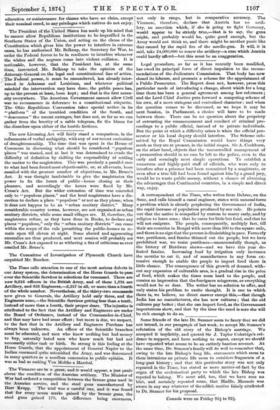The new Licensing Act will fairly stand a comparison, in
the refinements of verbal ambiguity, with any of our recent curiosities of draughtsmanship. The time that was spent in the House of Commons in discussing what should be considered "populous places" was wasted, and at last it was determined to evade the ,difficulty of definition by shifting the responsibility of settling the matter to the magistrates. This was precisely a parallel ease to what had been found most objectionable, or, at all events, been assailed with the greatest number of objections, in Mr. Bruce's Act. It was thought inadvisable to give the magistrates the power to fix the hours of public - house closing at their pleasure, and accordingly the hours were fixed by Mr. -Cross's Act. But the wider extension of time was conceded only to "populous places," and the local magistrates have a dis- .cretion to declare a place "populous" or not as they please, when it does not happen to be an "urban sanitary district." Many considerable country towns, however, are not organised as urban sanitary districts, while some small villages are. If, therefore, the magistrates refuse, as they have done in Bucks, to declare any places "populous," only-the." urban sanitary districts" can come -within the scope of the rule permitting the public-houses to re- main open till eleven at night. Some absurd and aggravating :anomalies are thus produced, and next session will probably see Mr. Cross's Act exposed to as withering a fire of criticisms as ever assailed Mr. Bruce's.






























 Previous page
Previous page